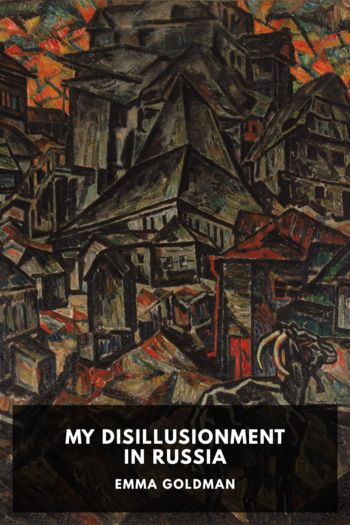Monkey Boy Francisco Goldman (best ereader for students .txt) 📖

- Author: Francisco Goldman
Book online «Monkey Boy Francisco Goldman (best ereader for students .txt) 📖». Author Francisco Goldman
The train slows, allowing passengers to linger, through the windows, over the ruin and splendor of Bridgeport: old factory buildings, many with bricked-in or gaping windows; tall smokestacks, some exuding black smoke; container cranes and storage tanks, a few berthed ships; the greasy sheen of canals and stagnant inlets under concrete highway overpasses; slummy apartment buildings and homes, plywood-covered windows gray with moisture or rot. Farther on, after we’ve left the station, a CasparDavidFriedrich graveyard with crooked gravestones, bare, black, twisted trees, enclosed by an old wall of stained, crumbled masonry and shriveled vines.
The Ways was what the rich-people part of our town was called, out near the Charles River and the border on that side, because it was only out there that the streets had names like Bay Colony Way and Duck Pond Way. Not many if any Jews lived out there. The various Ways turned off one or the other of a pair of sparsely settled avenues to loop past houses built on adjoining lots as in the town’s other subdivided neighborhoods, except here the houses were much larger, none exactly alike, and some very unalike, and they stood far apart in yards that were like medium-size parks with their own stands of pines or islands of trees, with thick forest coming right up to the edge of backyards. But until the infamous Arlene Fertig night in the spring of eighth grade, I’d never seen any of those houses from behind, even though every morning before school I bicycled through the Ways on my paper route, riding at least part of the way up long driveways to snap tightly folded newspapers at front and side entrances, trying to make them fly end over end and land flat at the foot of doors, and keeping score, one side of the street against the other. The houses on the Ways had spatial depths I found it hard to imagine a house possessing. What was in those humongous basements? Movie theaters, indoor swimming pools, bowling alleys? Even the basement of our small ranch house on Sacco Road, where we’d lived before Wooded Hollow Road, had seemed kind of limitless to me, especially on the other side of the paneled bedroom that my father built for Feli when she came from Guatemala, sent by Abuelita to be our housekeeper and to help take care of Lexi and me, that area of raw cement where my father’s massive pine carpentry table and the clothes washer and dryer were, pink fiber insulation wadded like cotton candy between two-by-four beams and into the ceiling, and the storage area at the back, a spooky tunnel of luggage and stacked cardboard boxes where when I was small I liked to hide for hours, and down at the basement’s other end, a furnace like an iron dragon, a blaze roaring in its belly through the winters.
Arlene Fertig was the first girl I ever kissed. It comes back like this whenever I’ve been thinking about Ian Brown. In my memory they’re linked, Ian and Arlene and later Marianne. Arlene was from the same neighborhood as Ian. Romance had been building between Arlene and me in the ways it does in the eighth grade, flirty smiles, cryptic comments from other girls, slow dancing with her to “House of the Rising Sun” at our middle school’s afternoon dance, the warmth of her waist in my hands through her corduroy dress, her hands on my shoulders, her freshly shampooed hair that fell midway down her back, straight but not fine, tingling against my cheek. When the song was over she thanked me in her slightly hoarse voice and I speechlessly slunk away, stunned by the novel overload of sensations. Black bangs over darkly made-up eyes gave her a precocious look, and she was so slight that when she hurried through the halls at school she looked like a running marionette. Once, between classes, when we were trying to have a conversation, she said, My hair is too heavy. It’s making my head ache. Do you think I should cut it all off? She seemed so sincere that I was too confused to say anything. In June, only a couple of weeks left in the school year, I was invited to Betty Nicholson’s party on Duck Pond Way, the first and only time I ever saw a house out in the Ways from the back. Breathing in the early summer lusciousness, looking across the lawn toward the tree line at the fireflies hovering out there, hearing the yammering of tree frogs and crickets, I had the impression of visiting a plantation estate in Guatemala. Arlene and I danced to some slow songs on the torch-lit patio: “Crimson and clover over and over.” One, two, three, go for it. I gave her a quick kiss on the warm flesh of her neck and turned into a trembling





Comments (0)